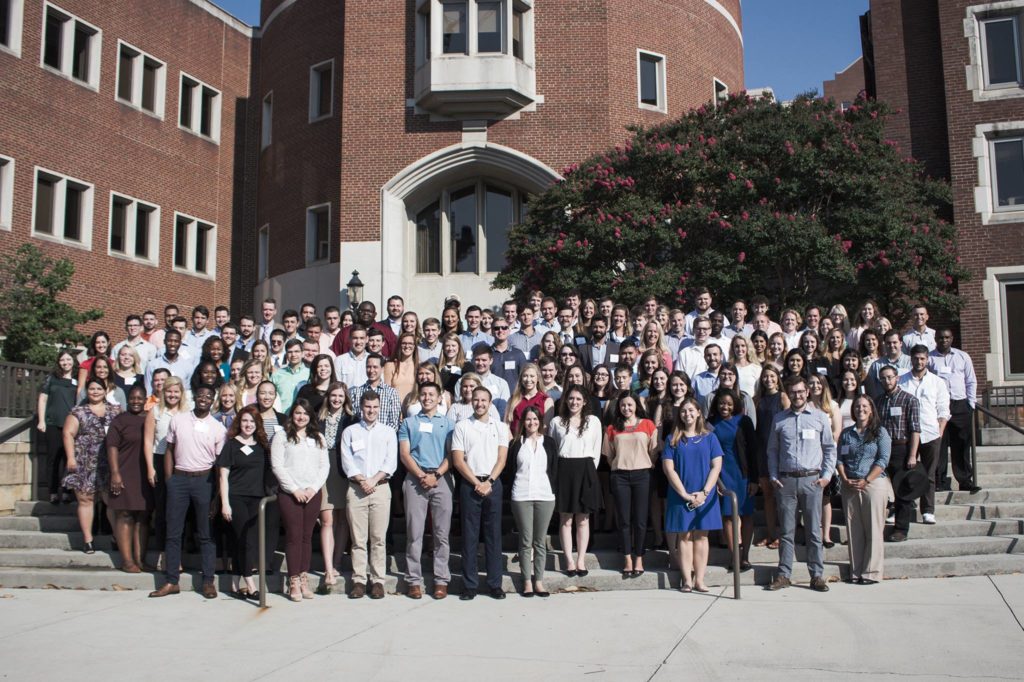The University of Tennessee College of Law this month welcomed its largest class of incoming students in four years.
The class of 2020 includes 122 students who are residents of 17 different states: 85 are in-state, while 37 are out-of-state students.
The student population is evenly divided – male and female, and offers the most diversity the college has seen in more than seven years with 23 percent of students identifying themselves as belonging to minority populations.
Dean Melanie Wilson looks forward to what the increased diversity means for the UT College of Law.
“This enriches our conversations in the classroom, it enriches our college and it enriches our entire community,” Wilson said.
“As lawyers, you have to understand all of the potential arguments in order to make good decisions and best represent your clients,” she said. “One of the very best things we can do is teach our students to understand, appreciate and anticipate opposing views and legitimate legal arguments that are different from their own.”
While the number of admitted students has increased, their level of performance – compared to other classes – is level. The median undergraduate GPA is 3.52 while the median LSAT score is 158.
Admissions Director Sarah Busse said one of her approaches in recruiting this class was to pinpoint populations of students who may not have been targeted in the past.
“We have tried to make scholarships available that will attract some of the best students, including under-represented populations,” Busse said. “Being able to offer that financial assistance is so important to what we do.”
The increase in admitted students is particularly encouraging given the national trends of the last several years. According to information compiled by the Law School Admission Council, the number of students expressing interest in attending law school by taking the LSAT is down 36% since 2009.
In 2016-17 in Tennessee, 1,231 students took the LSAT while 1,321 students took the test during the prior year.
Wilson looks forward to the long-term benefits of a larger class of students.
“Many of these students will graduate and return to their homes to begin their practice of law in underserved communities. Others will find jobs and develop relationships in larger cities, all the while representing the University of Tennessee and the quality education they received here,” she said.
“That’s really important for our school.”
